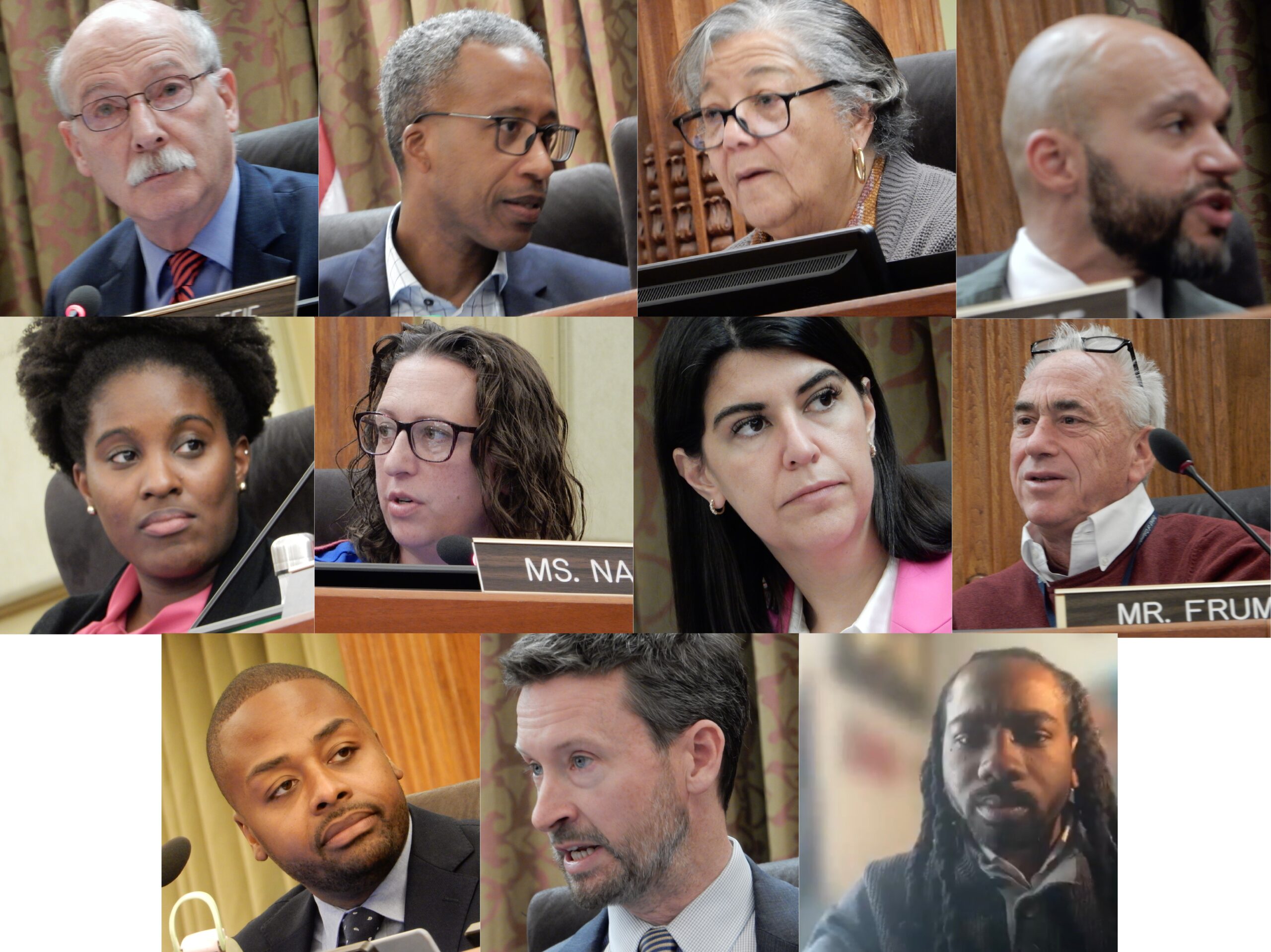Council Limits Hours of Amplification and Bans Projectile Use at Residential Protests

“Methinks thou dost protest too much” is the common aphorism that streamlines a quote from Shakespeare’s Hamlet. At the Council’s latest Legislative Meeting, no one claimed that anyone was protesting too much. Indeed, while DC is no longer exclusively a “government town,” it can still fairly be said that protests are our most prolific local industry, and no one seeks to change that.
However, with an increasing trend towards protests at individual residences, in residential neighborhoods, the impacts of our zest for protest are extending far beyond those targeted by the protesters. As is often the case with the rights we all cherish, while support for the core right is hopefully not in question, it is at the fringes of the right’s exercise that debates may occur. And in this case, the logistics of residential protests were specifically what was in question at the most recent Legislative Meeting.
The Supreme Court has long upheld limitations on the right to protest at homes. Past court decisions have referred to homes as “the last citadel of the tired, the weary, and the sick” and have also highlighted the importance of “preserving the sanctity of the home, the one retreat to which men and women can repair to escape from the tribulations of their daily pursuits.” It is this unique status of the home, however, that makes it an appealing intense protest venue in some cases.
The goal of Council legislation on this topic was to attempt to thread the needle between recognizing the unique status of the home while balancing that against the fact that any limits to foundational American rights such as the freedoms of speech and assembly, must meet the highest of bars to be permitted.
Existing District law, which has largely gone without legal challenge for well over a decade, bans protests at homes in residentially zoned areas, conducted by three or more people, between the hours of 10PM and 7AM. The emergency measure initially under consideration at the most recent Legislative Meeting would have further limited the “no protest” hours to 7PM to 9AM, banned the use of amplified sound devices at residential protests at all hours, banned throwing or launching projectiles at homes during protests, and created a new offense if protesters told to disperse from protesting at a home return to re-violate the law.
The proposed bill limiting residential protests was introduced as an emergency bill, meaning that no hearing was required, the bill could have no cost, and it would go into effect immediately after a single Council vote once signed by the mayor, and without need for Congressional signoff, but only for a period of ninety days.
However, emergency bills require a heightened vote threshold of two-thirds support, and in order to achieve that level of support, changes were thought necessary in order for the bill to pass. In the end, the version of the bill passed by the Council maintains the existing residential protest hours of 10PM to 7AM, but it restricts the use of amplification devices at such protests between the hours of 7PM and 9AM. The elements of the initially proposed emergency bill regarding projectiles and the new offense for cyclically returning dispersed protesters remained in the bill as passed.
Override of Mayoral Veto on Assistance for Circulator Drivers
In the history of Home Rule, it is fairly rare that Council legislation is vetoed by the mayor. LIMS, the Council’s legislative search engine, only includes records of 57 such prior vetoes occurring from 1989 (the first year digitized Council records are available) to the present day. It is even more rare that mayoral vetoes are in turn overriden by the Council.
At the most recent Legislative Meeting, the 58th veto override in this 35-year stretch occurred. The Council voted unanimously to override a mayoral veto of an emergency bill requiring all funds generated by the sale of decommissioned DC Circulator buses be used to support the soon-to-be laid-off Circulator employees who will lose their jobs as part of the abrupt cancellation of the longtime bus service. Councilmembers also defended the work of the Council’s stellar budget office, which was called into question by the mayor’s veto message on the Circulator measure.
Other Council Action
Also at the most recent Legislative Meeting, the Council passed, on the first of two needed votes, :
- A permanent version of an existing temporary bill providing retired police officers and firefighters with the ability to work for the beleaguered Office of Unified Communications as 311/911 call-takers without interrupting or endangering their ongoing pension payments.
- A bill requiring education for teachers regarding seizures, and required planning for how to respond to student seizures that occur in schools, including the filing of Seizure Action Plans in each affected student’s school files.
- A bill to both expand the list of items that it is illegal to dump (including more of the worst offenders in this category, such as mattresses, tires, and appliances) and to strengthen the District’s authority to enforce laws on dumping.
- A bill to expand the District’s existing successful Great Streets commercial corridor economic development program to include sections of Mount Vernon Triangle, Eastern Market, and Barracks Row.
The most recent Legislative Meeting was only attended, live or virtually, by eleven Councilmembers. This was bittersweet. While Ward 4 Councilmember Janeese Lewis George was absent due to the joyful news of the birth of her son, Pierce James, just one day earlier. Ward 7 Councilmember Vincent Gray was also absent, having announced the prior week that due to his ongoing health concerns, he would no longer vote on matters that are before the Council.
The Council’s next Legislative Meeting will be held on November 12.